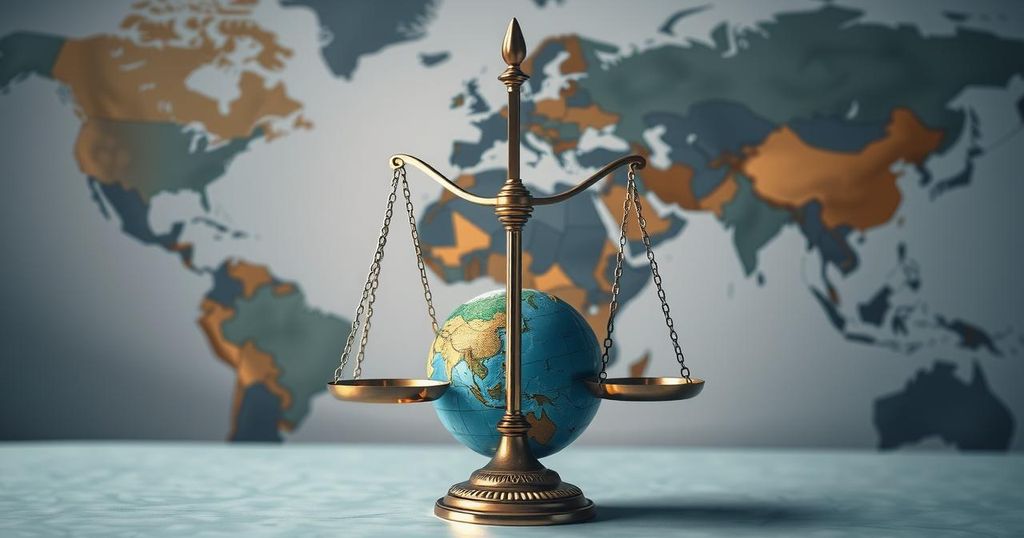Musk’s Influence on Trump’s Stance Towards South Africa

Tensions escalated between the U.S. and South Africa after Trump announced a halt to aid over land reform issues. South African President Ramaphosa sought help through Errol Musk to reach out to Trump amidst Republican criticisms of South Africa’s policies. Elon Musk’s alleged influence and his criticism of South African ownership laws escalate the controversy, suggesting economic interests are shaping U.S. foreign policy.
Recent tensions between the U.S. and South Africa have sparked controversy following Donald Trump’s announcement to suspend aid to South Africa over claims of land confiscation and mistreatment of its citizens. South African President Cyril Ramaphosa turned to Errol Musk, father of billionaire Elon Musk, to potentially communicate with Trump and address these concerns, indicating whom he believes holds sway with the U.S. president.
Criticism has erupted from Republican figures regarding South Africa’s land reform laws, with key politicians like Marco Rubio refusing to attend a G20 meeting and Ted Cruz accusing the South African government of deliberately antagonizing the U.S. This backlash has been further fueled by Elon Musk’s claims of racist ownership laws in South Africa, leading to accusations that Musk’s business interests are influencing U.S. foreign policy.
The South African government, keen to clarify misconceptions regarding its land reform legislation, emphasizes that expropriation without compensation will only occur under just circumstances. However, the new law has triggered debate about historical grievances related to land ownership, predominantly benefiting white South Africans and contributing to rising tensions.
Elon Musk’s recent criticisms of the South African government are reportedly linked to his failed attempts to secure approval for Starlink services due to local equity laws favoring black-owned businesses. The ongoing backlash aligns with the Republican focus on land reform, which Musk and his supporters claim is detrimental to property rights and racial equity.
The situation highlights broader geopolitical undercurrents, as South Africa maintains ties with nations like Russia and China, aligning against U.S. foreign policies. Accusations of disinformation from South Africa’s government and calls for dialogue with Trump reflect an urgent desire to mitigate the damaging potential of severed relations.
With U.S. aid crucial to South Africa’s economy, especially in healthcare and trade agreements, Trump’s threats could have profound implications, pushing the nation to deepen ties with alternative global powers. While Ramaphosa addressed the state of the global economy, he asserted that South Africa would not be intimidated by external pressures.
The dynamics between South Africa and the U.S. are significantly influenced by economic policies, historical land ownership issues, and recent geopolitical alignments. South Africa’s struggle to balance its stance on land reform and international relations has attracted critical attention from American politicians, particularly those aligned with conservative ideologies. The involvement of influential figures like Elon Musk complicates matters, suggesting that personal business interests may steer foreign policy decisions and public perceptions.
The intersection of business interests and foreign policy is vividly demonstrated in the current South African situation, where Elon Musk’s influence and Donald Trump’s responses are reshaping international relations. The balance of power tilts as South Africa navigates growing tensions while attempting to maintain diplomatic channels and economic stability. With critical international aid at stake and local governance issues rising, South Africa’s future engagement with the U.S. remains uncertain, potentially pushing it closer to other global partners.
Original Source: www.telegraph.co.uk




